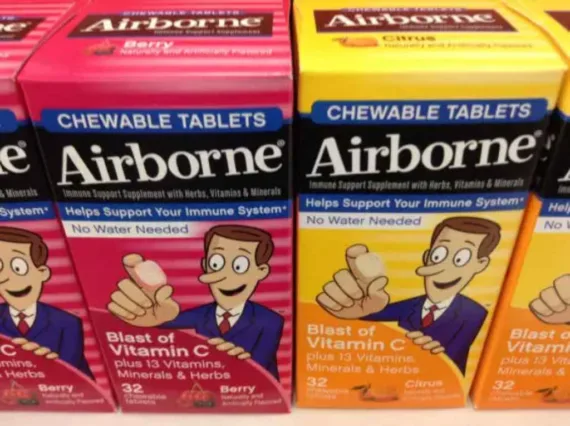Aren’t you dying to know what I have in common with Will Ferrell, Amy Poehler, and Keegan Michael Key? We all took improv comedy classes!
And I bet you’re also wondering how improv comedy is good for your health.
Well, it’s a well-known fact that laughter therapy is really good for you. It can even help with stress, your relationships, and post-traumatic stress.
If you’re thinking I’m crazy, delusional, or worse — I’m here to prove you wrong.
A good laugh has great short-term effects. When you start to laugh, it doesn’t just lighten your load mentally, it actually induces physical changes in your body. Source
I had just gone through a break-up and was looking for a pick-me-up and a way to meet new people.
I’m kind of the most introverted extrovert I know. I define being an introverted extrovert as loving my alone time (I can sometimes hibernate for days), but when I’m out and being social I thrive and enjoy it a lot (in small doses). Can you relate?
Here are the 5 ways that taking improv comedy classes helped me with my stress, relationships, and PTSD:
#1 – I Learned To Expect The Unexpected
I know you’re wondering, “How the heck can improv help with PTSD?” Well, if you suffer from post-traumatic stress disorder like me, keep reading.
Improvisation teaches you to soften your focus and heighten your awareness — so that you can respond well to surprises.
Here are some things you can expect to encounter in an improv class:
- You’ll probably be exposed to loud noises.
- There may even be some occasional screaming.
- There are often other forms of physical contact with your fellow classmates.
Also, you’ll work in close proximity to your partners and most improv theaters are small — so it’s a pretty intimate environment. If you suffer from some of the common symptoms of PTSD, this controlled environment can really help you with your recovery.
I also noticed that my senses were fully involved. So by paying attention to cues, I learned to know what might be coming next — which helped with my jumpiness and fear of surprises.
See the parallels between therapy and improv comedy.
#2 – It Enhanced My Listening Skills
This was one of the most surprising and helpful skills that I learned in my improv comedy classes — and it’s helped me in my relationships tremendously!
Improv teaches you to listen more patiently and to respond more slowly than you may be accustomed to.
If you’re anything like me, you might notice that when talking with someone you are already thinking of what you’re going to say in response — so you’re not really listening to the other person. I have a terrible habit of this… and interrupting when someone else is speaking.
If you do this in improv, it can backfire very quickly in the form of you totally missing a cue (or “carrot”) your partner puts out there in front of you. And if you miss it, the audience will know.
Even though improv comedy is spontaneous, it’s best if you and your partner are in sync — otherwise it doesn’t flow very well at all (and you won’t get many laughs). The best way to be in sync is to listen to your partner!
Here’s how improv comedy classes help your communication skills in business and personal settings.
#3 – It Helped Me Overcome Social Anxiety
Remember when I said I’m an introverted extrovert?
I definitely have signed up for a lot of classes and “things” in the past. But I usually didn’t follow through — because of nerves, or I just didn’t feel like I was good enough.
Researchers and clinical psychologists alike have begun to pay attention to improv, conducting studies or incorporate it into work with their patients. The improv stage, in theory, is a space free of judgment or fear of failure, making it an ideal environment for people who struggle with low self-esteem, social anxiety, or other types of anxiety disorders. Source
Improv helped me get over my shyness and anxiety. Every class started with fun teambuilding activities that inevitably led to hysterical laughing — which I soon learned was the same as laughter therapy.
#4 – It Taught Me That It’s Ok To Fail
Improv class is one of the few places in life where you totally have permission to genuinely “fail” without fear.
Even if you miss a cue in your improv class, you’re rarely ever alone on stage and there’s always someone who can bail you out. You can even make fun of yourself — and that’s always bound to bring some laughs!
This is where my self-confidence grew and my stress and anxiety over being “perfect” or “good enough” were reduced greatly.
How was I able to gain the confidence you ask?
With practice. We practiced — a lot! 8 weeks of 2-hour practices. Few people are ‘naturals’ at improv on day one, so practicing is a great way to learn any new skill.
Here is what we practiced in my improv comedy classes on a regular basis:
- Learning how to tell a story.
- Acting out a scene without physical props through the use of hand gestures.
- Making up dialogue and adding to it.
- Making your scene partner look good (by listening and picking up on their cues).
We practiced much like you would if you’re a part of a sports team, and we worked on improv drills during each class.
Here are 3 fun improv comedy drills that can also be used as team building exercises.
#5 – I Learned That Everyone Wanted Me To Succeed
People who take improv comedy classes do so for all sorts of reasons:
- Maybe they are getting out of a relationship and want to meet new people.
- They might be trying to land an acting part.
- Maybe they are doing it because they love learning new skills.
…Or all of the above!
At improv class, it didn’t matter that I wasn’t the best. I didn’t have to be the best one to still have fun and be supported by my classmates. Everyone wants you to do well — your scene partner, the audience, and your teacher.
I felt like such a part of something fun, and that helped me overcome my social anxiety as well.
And I laughed… a lot!
Here’s more proof that laughter therapy is awesome.
The Bottom Line
Improv comedy forced me to put my smartphone down and learn new skills at the same time. It had a great way of dragging me into its world of high-energy, immediate, person-to-person interaction.
Here’s what improv comedy classes taught me:
- That it’s a lot harder than I thought. (But so much fun!)
- That I had some really bad habits — like interrupting people when they talked.
- That I am somewhat witty, but wasn’t as quick on my feet as I thought I was.
Now that the class has wrapped, I continue to reap the health benefits from having taken improv classes — like improved relationships, less stress & anxiety, and I’m getting a lot better at handling my reactions to things that used to startle or “trigger” me. And I had a BLAST taking the class!
- How To Find Improv Meetups Near You
- How To Choose The Right Improv School For You
- A Beginner’s Guide To Improv
I’m a health nut, a frugal mom, a dog lover, a DIYer, and a gadget girl. Personally, as a post-divorce, working single mom on a budget I have a lot of experiences that I enjoy sharing so others can learn from the things I wish I knew earlier! Professionally, I’ve worked full-time in a variety of marketing, sales, and editing jobs. You can always find me at the corner of Good News & Fun Times as Managing Editor at The Fun Times Guide (32 fun & helpful websites).








